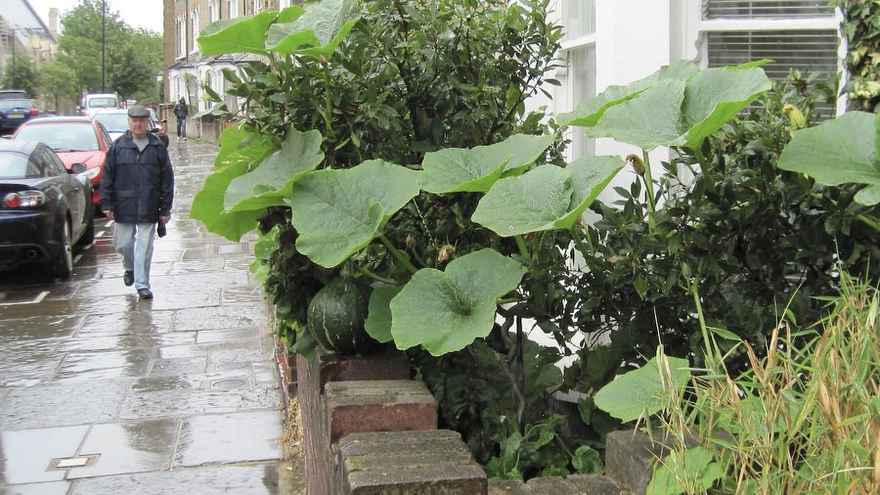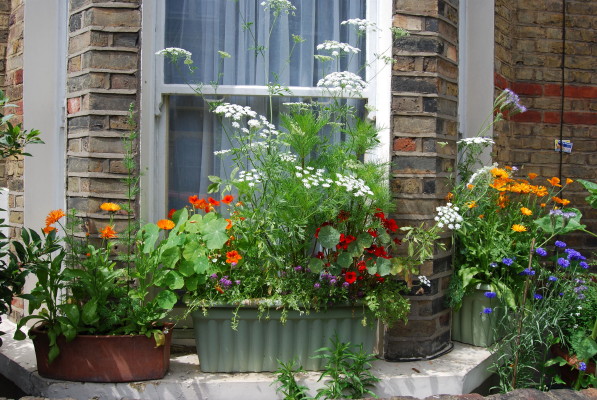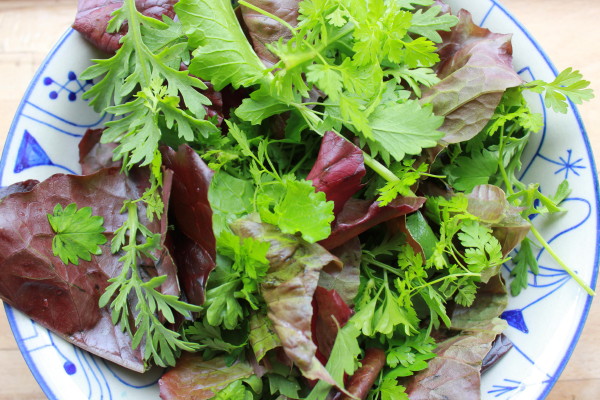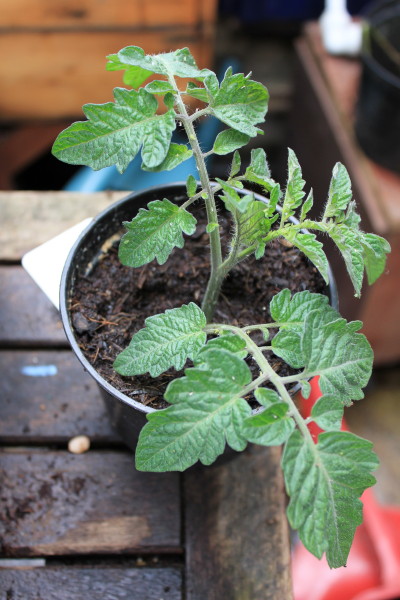Community: Nine ways food growing can help you meet neighbours

Big cities are not always the easiest places in which to feel part of your local community. But growing food can be a great way to break down the barriers. Here are nine tricks you can use to engage more with your community through growing food in containers.
Trick 1. Grow food 'up front'
Food growing is a common language - shared by young, old and people from all backgrounds. If your food growing is visible, you'll soon find yourself chatting to passers-by as you tend your crops. You don't need to grow a lot - even one pot of tomatoes will create interest. And you'll stimulate even more interest if you: Grow something unusual / striking Like purple peas, fat baby achocha or a large trailing squash! The squash, photo above, created much local interest for several weeks - the builders next door checked on it every day, and some neighbours asked if they could have some of the leaves (a popular food in Bangladesh). Grow something beautiful And brighten up your street - for ideas see Edible beauty: great looking crops for pots. Grow crops of interest to cultural groups in your area Lemon grass, chillies, coriander, sweet potatoes all grow well in the UK, for example - see the excellent Sowing New Seeds website from Garden Organic for more ideas.
Trick 2. Offer to grow food or flowers for a neighbour
Or, even better, help them grow their own! It can be a rewarding and enjoyable project to work on together. Here are some flowers I grew with some neighbours in London.

Flowers I grew with my next door neighbours - they brightened up the street AND attracted insect pollinators for my crops next door!
Trick 3. Share any surplus with your neighbours.
Even in a small space you can have a surplus of herbs, salads, chillies, runner beans or tomatoes - particularly before you go away on holiday. It's fun (and quite a novelty) to be able to pop next door and give some away!

We often had a surplus of salads and herbs - enough to give away to friends and neighbours.
Trick 4. Take a table or stall at your local fete, street party or community event
And talk to people about growing food in containers. Take a container or two a long as prop - and perhaps any spare seeds you have to give away. Contact me if you'd like any ideas for what to do.
Trick 5. Source food waste from neighbours or local cafes / shops
Need more food to feed your wormery (or compost)? Why not speak to your local coffee shop (for coffee grounds), food store or restaurant for their waste? Often they have to pay to dispose of it - and will be pleased for you to take it away. You'll probably make new friends in the process. At one point I had three wormeries on my balcony - and the local coffee shop became an important additional food source!
Trick 6. Join your local growing club
Find out if there is a local community food growing project or growing club in your area. These are a great way to meet and learn directly from others growing in your area. And you'll meet other partners in crime to undertake new local initiatives together.
Trick 7. Run a container growing workshop
For your local community group or your estate. Once you've got a little experience (you don't need too much!) share it with your community or local group. A local pub, community centre, cafe, or church hall will probably be happy to host it for you without charge - ask around, it's amazing what you can discover.
Trick 8. Share surplus seedlings or seeds
Offer spare seedlings (surplus tomato plants, anyone?) or seeds to neighbours. Saving your own seeds is rewarding. The seeds of some crops are easier to save than others. Tomatoes are particularly easy and you'll get hundreds of seeds from just a few fruits. If there are a few of you growing in your neighbourhood, you could organise a local seed swap or a community plant sale.

Small plants make a great gift - and it's common to have a few surplus you can give away.
Trick 9. Holiday watering
Holiday watering is one of the biggest challenges of container growing - but also offers a great opportunity to share / swap with a neighbour. Or why not ask a neigbour to water in exchange for picking your produce?
Your turn
Do you have any experience of getting to know people or feeling more part of your community through food growing? I'd love to learn about it in the comments below.

9 comments
Leave a comment